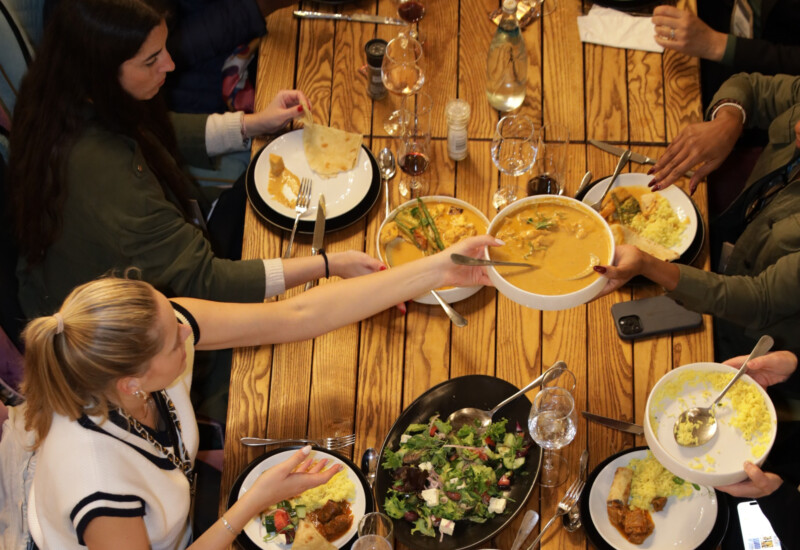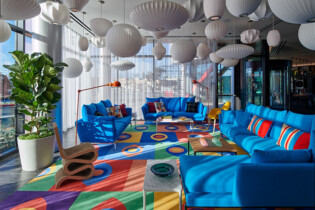Culinary tourism remains one of the hottest trends across the globe, with travellers – both young and old – actively seeking authentic foodie experiences, hands-on workshops and cooking classes, gastronomic tours, and new dining destinations. So much so that global management consulting firm IMARC predicts that the culinary tourism market (currently valued at just over US$1 trillion) will reach more than $4,2 billion by 2033, a compounded annual growth rate of 14.46%.
This gastronomic renaissance is also starting to make its presence felt in the MICE space, with culinary experiences emerging as a pivotal factor in event success. Far beyond keeping delegates fed and watered, food has become a powerful tool for creating memorable experiences, fostering connections, and showcasing destinations.
Megan De Jager, Portfolio Director at International Luxury Travel Market (ILTM) Africa, which will be held at the Norval Foundation in Cape Town in April 2025, says that today’s attendees expect more than standard conference fare – they’re hoping for innovative dining experiences that reflect local culture.
“Food should always be a top priority when designing an event,” says Megan. “You don’t need to default to a venue’s standard menu options; most chefs or F&B managers will be open to designing a menu that matches the vision for your function. Have the conversation, because it can make such a difference to the success of your event.”
As an example, Megan says ILTM Africa 2025 is including a gourmet braai (putting a twist on a local favourite) as well as ‘pop-up’ concepts featuring artisanal drinks and chocolates to celebrate South African chefs, innovation and produce – and take the event experience to all-new levels of luxury.
Food is also a great conversation starter and integral to any networking event. Martin Hiller, Portfolio Director of RX Africa (FAME Week Africa), says the ‘African Women in Entertainment’ breakfast was a highlight of FAME Week Africa.
“Networking through culinary experiences is an underrated trend,” says Martin. “It’s an opportunity to create connections in a fun, relaxed, natural setting. These dining experiences serve as catalysts for conversation, relationship-building and memorable moments.”
More than that, Carol Weaving, Managing Director RX Africa, says that not only does food & beverage consistently rank among the top three factors influencing attendee satisfaction, but it’s influencing event planners across the globe.
“Destinations known for their culinary heritage often see increased interest from event planners,” says Carol. “Cities like Singapore, Barcelona, and New Orleans have all successfully leveraged their food culture to attract high-profile events, contributing significantly to their tourism economies. There is no reason why South Africa, which was named the best culinary destination in Africa for 2024 at the World Culinary Awards, or Cape Town – host to several RX Africa events and named the best food city in the world by Condé Nast – can’t do the same.”
For Carol, emerging culinary trends also make the events space an exciting place to be. “Event planners are increasingly prioritising locally sourced ingredients and zero-waste initiatives,” she says. “This approach not only appeals to eco-conscious attendees but also supports local economies and reduces carbon footprints.”
Carol explains that health and wellness is also fast becoming a non-negotiable, with today’s events catering to a diverse range of dietary requirements, from plant-based options to allergen-free meals. This inclusivity ensures all attendees can participate fully in the culinary experience while maintaining their dietary preferences or requirements. The pandemic also played a role here, with people more aware of safety protocols than ever before. “We’re definitely seeing a different approach to food service,” says Carol. “Innovative set-ups and solutions now enhance rather than compromise the dining experience. Think increased safety standards, specially plated portions, and outdoor dining spaces.”
Looking ahead, expect more interactive food stations, chef demonstrations, and hands-on cooking experiences at events. For Carol, these elements transform passive attendees into active participants, creating more engaging and memorable experiences.
“Investing in culinary experiences is worth every penny,” says Carol. “Events that put food – and culinary experiences – high on the menu typically see higher attendee satisfaction scores and stronger registration numbers for future editions. Moreover, unique culinary experiences often generate social media buzz – and great Insta images – extending the event’s impact beyond its physical attendees!”







